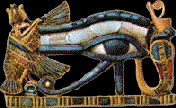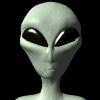What have we done .... ?
Most damage to our only home and the inhabitants we share it with began in the 19th and early 20th century, though now we note signs of sincere attempts to turn it all around, like hybrid cars and living "green". But hard facts are truly written in stone. Far too little, much too late.
By 2035 the only place you'll see a wild bumble bee is - nowhere. Dead in a museum, that's about it. The bees that honey-farmers keep have been disappearing all over the globe in such great numbers science has taken notice. By the way, without bees...well, follow it through. They're both predator and prey. Most life forms eat them or their by-products. They pollenate flowers and allow fruit to grow. Even carnivores eat fruit, we all do. For some animals, it's their main source of energy. If you extinguish prey, the predator starves. Extinguish the predator and the prey also starve, from over-population. But here's something much more alarming:
In a world-wide search for the cause of this disappearance, entomologists have discovered something called CCD, or Colony Collapse Disorder, it's a virus, an immune disease, much like our Human IV. They are infested with a parasitic worm which weakens their immune systems, and not only that, they cannot seem to digest their food and are starving to death, while eating. The grain and pollen they eat sits undigested in their abdomen and kills them in great numbers. Lab experiments show that this parasite also affects their ability to learn, memory, sense of community, basics for this animal. They fly from the hive and cannot find it again. They die.
Green turtles are off the endangered species list - they're now on the 50-year line into extinction.
Orangutans will also go extinct, in approximately 20 years, just around the corner.
The cargil hummingbird cannot be found in the wilds of Indonesia or Asia anywhere, they may have completely died out there except in very high mountain nests, few in number. Why? Human animals like to boil their nests for soup. Don't we have enough Campbells?
The Arctic (northern) polar bear is dying out from sickness and addiction to human garbage. Though a "protected" species, they too, are slowly sliding off the endangered list into extinction. Another 30 years, maybe. The generation of adult bears were once cubs, watching their mothers feed on dump-heaps of human waste and have grown to believe that's their main food source. Many safeguards have been attempted but the bear remains a predator species, which is its want, and will certainly kill for what it believes is its food. Introduction into the wild has been a real failure, the animal doesn't understand how to hunt, how to distingush what is food and what isn't, and which animals they must compete with for food. This means sure death, they won't be able to fight off wolves for a deer carcass. Those that do are being shot as pests by cattlemen whether it's hunting season or not. Worst of all, because global warming is past control, their one habitat is disappearing. They live on the Arctic sea ice sheets, which are melting into the sea as ice floes and much of it will be completely gone by the middle of this century. Gone. (I'm thinking of the rise in water levels all over the globe) When the solitary polar bear is forced into close living with others of its kind, the stress levels rise and lethal fighting insues - polar bears are a "marker" species, one of many which tell the human what condition this planet is in.
Have you heard of M15? It a gigantic glacier, a mountain of an iceberg, its bulk obviously found under the sea. It's the highest found in the Arctic. Due to higher temperatures, it broke off from it's main ice sheet a few years ago. It's floating out to sea, crashing off in smaller ice floes and melting into the waters. As the sea rises and habitat is lost, not a creature will be left unaffected. Not a one. From penguins, otters and seals to migrating birds. And the incredulous find? Parasites are living in the ice of the arctic glaciers and ice sheets. Worms in the ice. Not the usual marine bacteriological life that exists there normally, perfectly set in the food chain of this harsh climate, but parasites expelled from the dead bodies of other marine life. This is advance notice of a planet gone terribly astray, extreme, unnatural, dangerous to life. And we don't know where else life exists, now shouldn't that say at least some small thing about its value?
Though the majority of the problem for our fellow inhabitants of earth is habitat loss, it's very frightening to discover an immuno-dificiency in the honey bee. Parasites which starve them. Life would not exist as we know it wthout this humble creature. Why do we need so much land?? I still say the human animal has populated itself out of all control and if a higher species existed here we'd have been rounded up and shot in controlled numbers a few hundred years ago to save this planet and its other inhabitants. Natural disasters do "cull" the human herd, but there's still too many of this one suicidal species - if humans were more of a beneficent life form, one that cared for and respected this earth and its other animals, things would never have gotten to this frightening level. We brought on the industrial age which is killing everything.
People are causing catastrophic futures they say they're sick of hearing about. They're going to get alot sicker.
















































18 comments:
I remember the first time I watched "The Matrix" and heard the description of humans as a VIRUS.
Yes, we are. A rather nasty one.
If the Earth is lucky, the toxicity that we are creating will kill US off in time for everything else to still have a chance.
But I doubt it.
This entry without a doubt opened my eyes to so very much. Your writings are so very important in journal land, for me you have helped to educate me in things I knew of but probably very little of. Luddie you are a vast amount of information to many who read your journals and I for one am so greatful you invited me to read yours. Thank you for this wonderful entry. Indeed as the saying goes sometimes "We are our own worst enemy". Humans want to make a better world so everyone can live in it, but it truly is ourselves who are destroying the life forms vital to our very existence. Again, my friend, thank you for being you and for the wonderful knowledge you so readily impart in your journal. God bless.
It's so sad, and there is nothing we can do to stop it.
I know... so sad.... so scary. How I worry for my kids...
be well,
Dawn
http://journals.aol.com/princesssaurora/CarpeDiem/
Thanks for sharing this info Cathy. I knew some of it but not all. This is how we start to make a difference. Love, Shelly
I was proud as can be reading this entry from you. You hit it on the nail and didn't hold back. Native Americans have always believed the Earth doesn't belong to us, we are only borrowing a small bit of space while we live. It's a good belief system, you don't abuse what isn't yours to abuse. None the less it hasn't made any difference for the majority of humanity. We wonder about the weather lately, the natural disasters.........I would say Mother Nature is solely pissed off at us for our treatment of her Sister. (Hugs) Indigo
wnat a sad state we are in
By example 100 years ago my country was the richest state in the world. They had a finger in each continent and they tried hard to civilise the natives. Remember George I? Our surrounding seas were over stocked by our riches in sea food. Men risked their lives in small boats to gather this harvest and they did, but each year the quotas were uncontrolled and were always larger than the previous. Songs were sung in the praises of collecting this resource. The Herring. How long did it last? Less than 5 generations. Our sea birds raid the towns looking for food. We see the printing of these animals in books now as are they are extinct in our North Sea. Now, it is the turn of Cod, Haddock and Pollack. As a fisherman who represented my homeland in this sport I was able to catch Pollack from our sea boats and never brought home more than I could eat as my neighbours didn’t like that type of fish. Today my family still refuse to consider that fish. Guess what we are buying fish from Alaska and eating it in bread crumbs. The name of that fish? Pollack of course!
Now how long will the stocks last in Alaska? On a global scale, it is truly frightening that we cannot see that our striving for glory and riches is doing un-reparable damage. Do we care? No we don’t. We are net consumers and not providers. That is the saddest part.
Knowing your writing for over a year I really enjoyed the way you tried to tackle this complex subject. It is with special thanks also to your commentaries who have said it to you better than I ever could. It is not just Native American's who believe that our Earth is only our stepping stone and not ours to abuse. I live closer to the Arctic Circle than most of the comments from the States. Our trees don’t grow in our northern areas and the land is hard and fruitless. Yet it was cleared of humans to make way for sheep by man’s greed for a dollar or in our case the pound. Many of our cleared citizens were given life in your world. However I have to agree we are our own worst enemies and somewhat of a virus on this planet. What can individuals do to stop this rot? Not a lot. I laughed at your comment on Campbell Soups native to my country. I am sure they don’t have a sales office in that area or it wouldn’t surprise me in the least they could supply.
It would be sheer folly to blame any individual state for the mismanagement of their own land, pollute their neighbours in carbon emissions, dust, dirt and disease alongside acid rain due to the prevailing winds. But that said, in the human race for riches gave no time to the possible affects that this race would have on our individual lives.
How will our mother Earth fare in 50 years time? I personally think that it will be similar to today. Man's greed and export drives will eventually catch them out and they will have to share some of our immediate concerns. Will it be too late? Of course it will; it is par for the course. The promise of new technological breakthroughs’ won’t solve our starving nations and famine and pests will become a sad norm.
Take the fight for customers in global travel? Airbus versus Boeing - Europe v America. Once delivered, Airbus A380 will take 850 plus passengers anywhere on our planet. They will convey us in luxury and affordability. The more clearing of land to make way for larger runways and the damage that will do to the natural resource. Where do we stop? We don’t as there is an answer to replace all these environments back to their original standing. Who is kidding who? Nobody, so I share your concerns and fears. I have seen the Pollack in real life yet my grandchildren will only see pictures of me catching them individually for sport. Not by the large trawlers that scoop them out of the sea by the metric tonne. Now it is the turn of the Tuna, the Matanzas. See our shelves are packed with cans of the stuff yet they belong in the sea. That is where we should want them. Individual choice to say No more folly and stop eating them. We are all guilty of that painful lesson.
Cathy, today we are manufacturing anything and everything and this will lead us to manufacturing our own fate and eventual doom. Thanks for the warning and your concern in this excellent expose of the frailty from which our habitat is reeling. More like this please as you tell it so well! Rock on gal!
Very interesting entry...Some things I had not heard of, like the parrasites in bees. As a child I helped my Dad care for a number of bee hives, collected honey, and even saw a wild honey bee hive in a couple of places here in NC. But I haven't seen any bees in a few years now...wondered why I don't see even 1 on any of my flowering plants. I'm very concerned, saddened and depressed about the state the world...our mother Earth is in right now. I'm worried about my children, and grandchildren and can only wonder what difficulties and what solutions will come about in the next 10 years as they grow up. It hurts that the younger generations have so much to deal with, I teach them and brainstorm with them...But my hope is in God, in his ability to help us, and no matter what happens here on this planet...There is a higher power, capable of turning things around...all in his time and his plans. As I feel helpless, powerless and guilty. I know we cannot even comprehend the extent or nature of our situation; God can. As the climate changes and our kids get asthma, danger lurkes at every turn and not just for polar bears...but for life in general, I try to do my little "part" and that seems like a drop in an ocean of chaos, distruction and death. Love2All http://journals.aol.com/mail4campbell/sharonspace/
I've seen a quite few bees this year, and I've taken note of them because of the reports on bees disappearing. It's nothing like prior years though. I remember fall being a time when we were literally fighting them off.
Jude
http://journals.aol.com/jmorancoyle/MyWay
As a whole humankind has not looked ahead to the consequences of his actions very well. In some ways, like the polar bear, many humans have become far removed from the land and nature. They can't feel the connection. Many don't understand what comes from what. - Barbara
We have well and truly F****** the planet. Mother nature has a way of turning things around, all she needs to do first is get rid of the humans!
Gaz xx
I pray that our small efforts in our daily lives will multiply and that balace will be restored to Mother Earth.
~Rosemary
This is so, so frightening to me, Cathy. Did you read what they reported just this morning? One-fourth of all species will be extinct in just 100 years, they believe. We all can do our part!! I go to Care2 every morning and try to do what I can to help. If we all just did something... Love, Val xox
http://journals.aol.com/valphish/ThereisaSeason
Hi, very interesting post, greetings from Greece!
Post a Comment